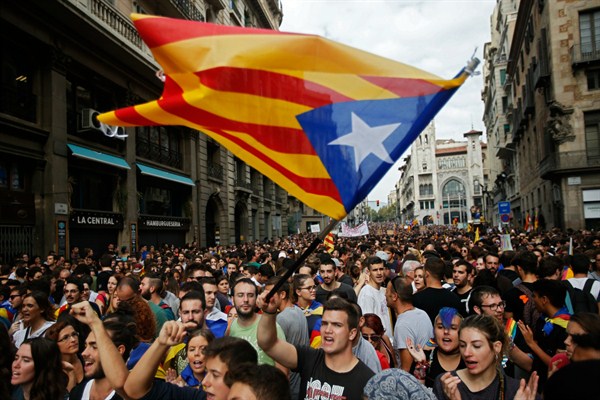Amid all the questions and uncertainty raised by Catalonia’s independence referendum on Sunday, one point of consensus has emerged: The government of Spanish Prime Minister Mariano Rajoy handled it lamentably, turning what almost certainly would have been a disappointment for Catalonian separatists into a catastrophe for Madrid. The repressive run-up to the voting and heavy-handed police response on the day of the outlawed ballot have generated outrage in Catalonia and beyond, providing a major boost to what opinion polling indicated was a minority movement.
Brinksmanship on both sides in the months leading up to the vote proved impossible to walk back. The local Catalan government’s determination to follow through on its longstanding threat to hold an independence referendum has now freed the genie from the bottle, with the possibility of a cycle of escalation that could easily get out of control. A general strike paralyzed the region yesterday. The local government is threatening to declare independence within days. And Spanish King Felipe made an unprecedented venture into politics to condemn the separatists in a nationally televised speech.
The historical roots of Catalonia’s independence movement are complex and diverse, with economic interests playing a major role. But at its heart, it involves a contest between national identity and a regional, cultural and linguistic identity. Similar dynamics are at work in Scotland and Belgium.

